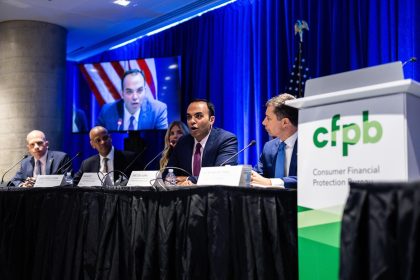After attending last week’s Milken Institute Global Conference, “Shaping a Shared Future,” I had one main takeaway: There was a lot of good talk about shaping the future, but very little about how we will share that future.
It’s always a privilege to be part of such a prestigious event, especially when it is held in haute Beverly Hills, at the Beverly Hilton. To be honest, as a Chicago guy, it took me some time to acclimate to the beautiful Hollywood hills. But when I did, I was struck by the intensity of the attendees’ commitment to addressing big issues and figuring out how technology can help solve climate change and other challenges.
AI-ifying Everything
My first stop was at a panel discussion on a topic near and dear to my heart: New Realities in Asset Management. Throughout this talk, one “reality” crowded out other issues: artificial intelligence, and its potential to transform almost everything. The panelists’ key point was that AI will and should eliminate work that doesn’t add real value, freeing up individuals to focus their time on activities that directly advance an organization and its mission. For asset managers, that means delegating to AI applications that collect, analyze and summarize data—activities that now take up huge amounts of time—and reallocating those hours to the higher-level pursuit of interpreting results and applying them to investments and the business. Panelists talked about AI’s ability to expand the reach of analysts and portfolio managers, to break down silos between functions, asset classes and business lines, and to help foster innovation.
The focus on AI was not limited to the asset management panel. In fact, AI was omnipresent in sessions and cocktail conversations. In the conference materials, organizers highlighted AI as a central theme, explaining “AI will revolutionize not only how we work, live and play, but even what it means to think and be human.” On panels specifically devoted to the topic some of the world’s most prominent AI experts—including executives from OpenAI and even Elon Musk—told the audience that the world’s biggest companies are already applying generative AI (GenAI) to use cases ranging from automating basic customer service to developing complex new medicines.
Shaping The Future
Throughout the week, attendees discussed how the same technologies will help us address environmental and geopolitical risks, including climate change, the rising threat of authoritarianism, economic inequality and the retirement savings gap. I was genuinely impressed by how much the “who’s who” of business, media (and social media) are committed to improving the world, and by their ability to explain the role technology will have to play in future solutions.
My one critique of the event is, for all the talk about how people and technology will shape the future, there was much less emphasis on how that future will and should be shared. The conference organizers defined “shaping a shared future” as “finding common ground amid the complex issues that have arisen in the post-pandemic world.” I think that’s a good definition. To address problems as sweeping in scope as climate change and inequality, we will need a shared common ground that supports collaboration across individuals, companies and nations.
Marshaling The Power Of Business
From my vantage point, that common ground starts with education, and the conference devoted little attention to the task of improving educational systems across the globe and in the United States, specifically. Because global solutions will inevitably require the cooperation of companies around the world, a shared common ground will also have to include efforts to support and incentivize the private sector. That means supplementing the “sticks” regulators have employed to motivate companies to address climate change and other issues with “carrots” that encourage them to bring their brilliant workforces and deep wallets to the table.
Although the vilification of corporate profits was fairly muted at the Milken conference, I wish participants had spent more time talking about how to marshal the power of business to tackle our big challenges. With Brexit and the growing rifts between the United States and China, the world has had a decided pivot from globalism to nationalism. Going forward, we will need to revert to a more collaborative framework in which businesses and governments unify to improve the lives of many.
Finally, even in the era of AI and other transformative technologies, implementing global solutions will require a broader sense of unity that is lacking today. Perhaps due to the impact of social media, we share less and less common ground. Whether the topic is national borders, foreign policy or political leadership, our society seems more divided than ever.
As the presenters at the Milken conference so skillfully explained, artificial intelligence and other innovations are giving us the tools we need to shape a better future. However, technology won’t help us find the shared common ground we’ll need to actually achieve that better world. That’s up to us.
Read the full article here

















